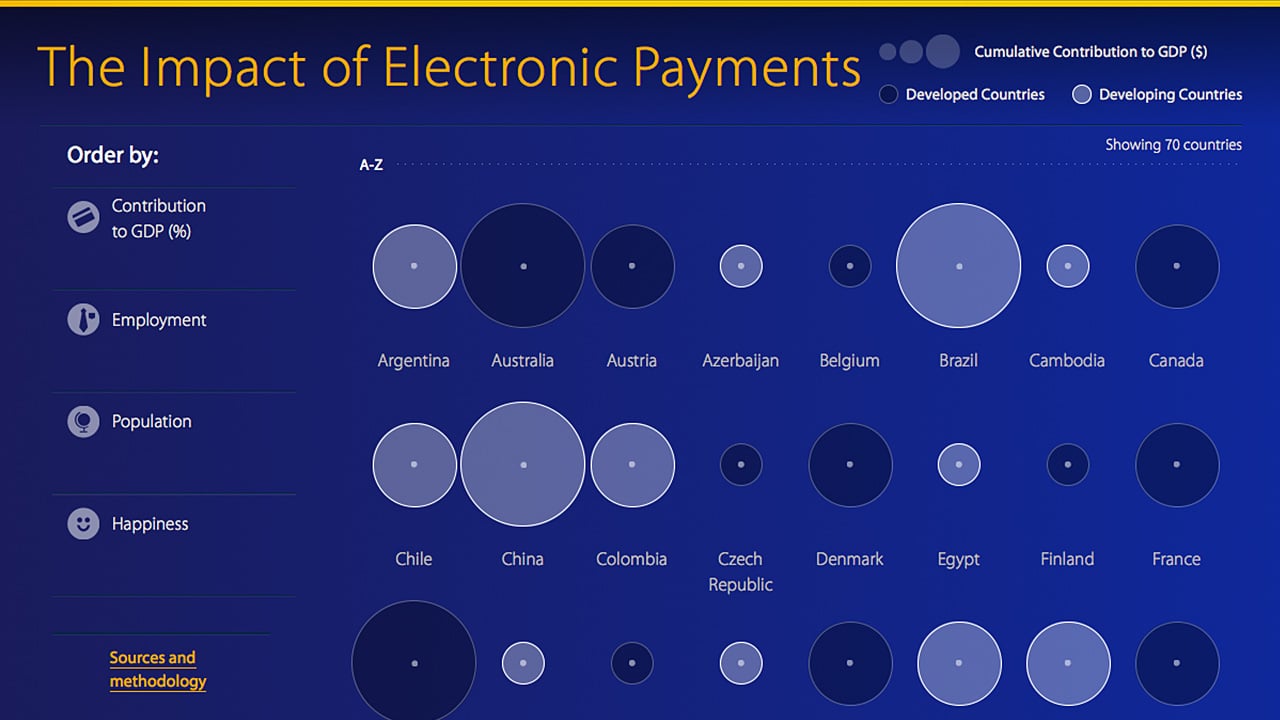The Impact of Globalization on Online Payment Methods marks a significant shift in how transactions occur across borders, revolutionizing the financial landscape. As businesses expand their reach globally, the demand for efficient and secure online payment solutions has soared. This evolution not only facilitates smoother cross-border transactions but also reflects the growing interconnectedness of economies, highlighting the necessity for adaptability in payment systems.
In today’s digital age, various online payment methods have emerged, catering to diverse consumer needs. From digital wallets to cryptocurrencies, these innovations are reshaping the way people conduct financial transactions, making it essential to understand how globalization drives these changes. The integration of different payment systems also raises questions about security, accessibility, and user experience, making this an intriguing area of exploration.
In today’s fast-paced digital world, the importance of effective communication cannot be overstated. Whether it’s in the workplace, during social gatherings, or in an academic setting, the ability to express thoughts clearly and concisely can greatly enhance interactions and foster understanding. This article delves into the nuances of effective communication, offering insights into its significance and providing tips for improvement.Effective communication is the cornerstone of successful relationships, both personally and professionally.
It is not merely about exchanging information; it’s about understanding the emotions and intentions behind the information. When individuals communicate effectively, they build trust and rapport, paving the way for collaboration and teamwork. In the workplace, for instance, clear communication can lead to increased productivity and reduced misunderstandings, which ultimately affects overall performance.One of the foundational elements of effective communication is active listening.
Active listening involves fully concentrating on what is being said rather than just passively hearing the message. This practice requires one to engage with the speaker, ask questions for clarity, and provide feedback. By doing so, listeners show their commitment to understanding the speaker’s perspective, which fosters a positive atmosphere and encourages open dialogue. Additionally, active listening helps to identify potential issues before they escalate, ensuring that all parties are on the same page.Another critical aspect of effective communication is non-verbal communication.
Often, what is left unsaid carries as much weight as the spoken word. Body language, facial expressions, and eye contact play significant roles in conveying messages. For instance, crossing one’s arms may signal defensiveness, while maintaining eye contact can indicate interest and engagement. Being aware of these non-verbal cues can enhance the clarity of communication and prevent misinterpretations. It’s essential to align verbal and non-verbal messages to ensure that the intended meaning is conveyed.Moreover, clarity and conciseness are vital components of effective communication.
In a world flooded with information, audiences appreciate straightforward messages that get to the point without unnecessary embellishments. When crafting a message, whether it’s an email, report, or presentation, it’s essential to consider the audience’s perspective. What is relevant to them? What do they need to know? By focusing on the essential elements and eliminating jargon or overly complex language, communicators can ensure their messages are understood and appreciated.Additionally, adapting communication styles to suit different audiences can significantly enhance the effectiveness of the interaction.
For example, communicating with colleagues may require a different approach than addressing clients or stakeholders. Understanding the audience’s preferences and expectations can help tailor messages appropriately. This adaptability not only demonstrates respect but also increases the likelihood of the message being well-received.Feedback is another crucial element of effective communication. Providing constructive feedback can help individuals understand their strengths and areas for improvement.
It’s important to deliver feedback in a manner that is supportive and encourages growth rather than fostering defensiveness. On the flip side, being open to receiving feedback is equally essential. Accepting constructive criticism with an open mind can lead to personal and professional development, enhancing one’s communication skills over time.In the context of digital communication, the rise of emails, messaging apps, and social media has transformed the way we interact.
While these platforms offer convenience and immediacy, they also pose challenges. The lack of non-verbal cues in digital communication can lead to misunderstandings. Therefore, it’s crucial to be mindful of tone and phrasing when communicating online. It’s often beneficial to reread messages before sending them to ensure they convey the intended tone and message.Furthermore, understanding cultural differences in communication styles can enhance cross-cultural interactions.
Different cultures may have varying norms regarding directness, formality, and non-verbal communication. Being open to learning about these differences can help avoid potential pitfalls and foster more meaningful connections across diverse backgrounds. This awareness can be particularly beneficial in global business environments where teams often comprise individuals from various cultural backgrounds.To cultivate effective communication skills, individuals can engage in regular practice.
Participating in workshops, joining public speaking groups, or seeking mentorship can provide valuable opportunities for growth. Additionally, reflecting on previous communication experiences—both successful and unsuccessful—can offer insights into areas for improvement. This reflective practice can help individuals identify patterns in their communication that may need refinement.Finally, it’s essential to recognize that effective communication is an ongoing journey. As individuals evolve, so do their communication skills.

Continuous learning and adaptability are critical in navigating the ever-changing landscape of communication. Embracing this journey with an open heart and mind can lead to profound personal and professional growth, enriching relationships and experiences.In conclusion, effective communication is an invaluable skill that can significantly impact various facets of life. By embracing active listening, being mindful of non-verbal cues, maintaining clarity and conciseness, adapting to different audiences, and embracing feedback, individuals can enhance their communication skills.
Additionally, being aware of cultural differences and continuously seeking opportunities for improvement can lead to meaningful connections and successful interactions. As we move forward in this dynamic world, let us prioritize effective communication and its potential to bridge gaps and foster understanding among individuals and communities.



